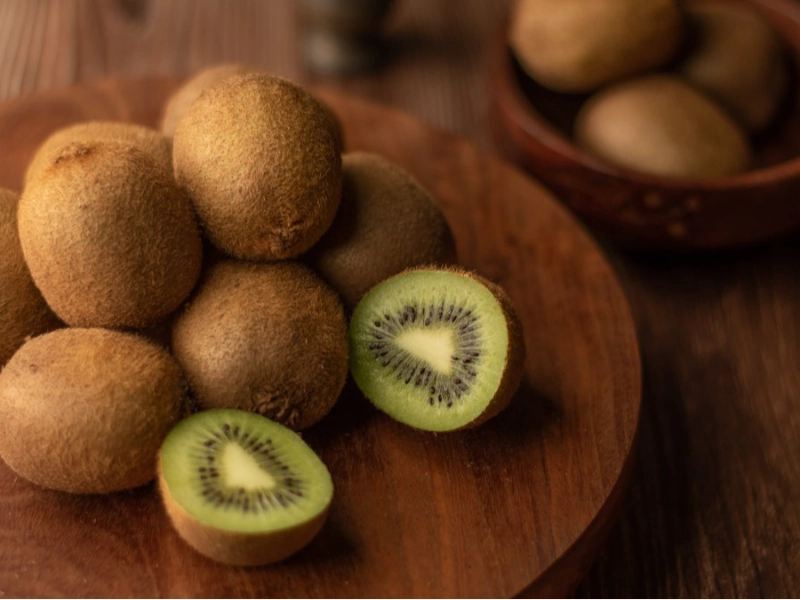Kiwi: The Secret Behind the Vitamin C King
Advertisement
2. Nutritional Profile: More Than Just Vitamin C

Advertisement
Although kiwis are well known for their great vitamin C concentration, their nutritional profile is significantly more varied and striking. These little fruits abound in vital minerals that support general health and well-being. Let's explore the dietary wealth kiwis present:
Kiwis are, first and most importantly a vitamin C powerhouse. With roughly 64–85% of the required daily consumption of vitamin C, one medium-sized kiwi surpasses even oranges in concentration. Immune system, skin health, iron absorption from plant-based meals, all depend on this essential antioxidant.
Still, the advantages go well beyond these ones. Kiwis also provide a great quantity of dietary fibre; both soluble and insoluble forms abound. For weight control, this fibre content helps maintain normal cholesterol levels, aids in digestion, and makes one feel full—all of which can be advantages.
Kiwis also contain another important nutrient: potassium. Maintaining appropriate cardiac function, controlling blood pressure, and supporting muscle and nerve activity all depend on this basic mineral. Given its around 215 mg of potassium, a medium kiwi is a great source of daily potassium.
Kiwis also abound in vitamin E, a fat-soluble antioxidant that boosts immune system and skin condition. They also have a decent supply of vitamin K, which is vital for bone health and blood clotting.
The fruit provides folate, a B-vitamin absolutely vital for DNA synthesis and cell development. For pregnant women and those intending to conceive especially, this makes kiwis quite helpful.
Fascinatingly, kiwis include an unusual enzyme called actinidin that helps break down proteins. A culinary trick utilised in many kitchens, the capacity of fruit to tenderise meat is also attributed to this enzyme.
Antioxidants, including carotenoids and flavonoids, are also rather plentiful in Kiwis. These substances enhance general health and help shield the body's cells from harm brought on by free radicals, therefore lowering the risk of chronic diseases.
Among various other vitamins and minerals, the fruit has minute levels of vitamin A, calcium, magnesium, and phosphorous. Though in less amounts, these add to the fruit's total nutritional worth.
Kiwis have low calories; a medium fruit has just approximately 42 calories. For individuals limiting their calorie count but still want to enjoy a sweet, healthy snack, this makes them a great choice.
Kiwis have a quite low glycemic index, thus they do not produce fast increases in blood sugar levels. For those with diabetes or those controlling their blood sugar levels, this feature qualifies them as a suitable fruit choice.
The nutritional value of kiwis might vary somewhat depending on the species and growing environment. For instance, whilst some red-fleshed cultivars may provide extra antioxidants, golden kiwis frequently have more vitamin C than green kiwis.
Advertisement
You May Like

